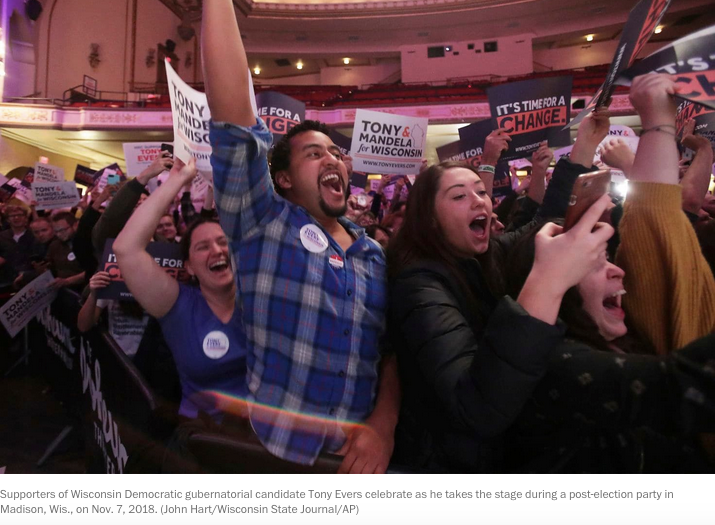EAU CLAIRE, Wis. — Two years ago, before Donald Trump was elected, Anna Rybicki would not have been seated at the dining room table at her home on Rust Street, devising a school reform strategy with five allies. She would not have attended a three-day community organizing workshop or made a pitch to the school board.
“It has changed my life, him getting elected,” said Rybicki, 39, a lawyer who has been a stay-at-home mother since 2011. “I never cried; I mobilized. That’s what felt good to me. I went to every meeting of everything.”
Since the eruption of nationwide anti-Trump protests in January 2017, a central question has been whether the energy would persist. The signs in Wisconsin so far have been positive for Democrats: They unexpectedly won a state Supreme Court race in April and flipped a reliably Republican state Senate seat in June. On Nov. 6, they defeated GOP Gov. Scott Walker for the first time in four tries. The statewide turnout percentage was among the highest in the country.




